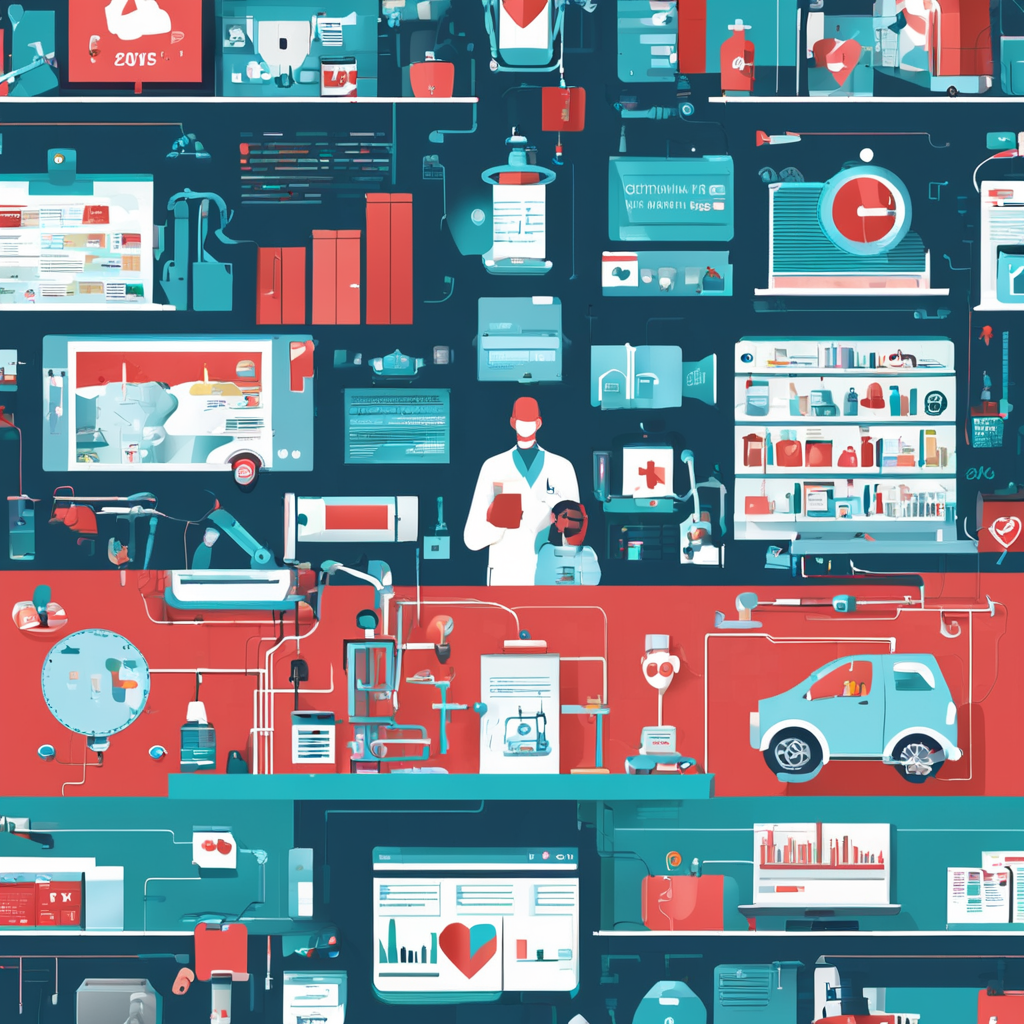Artificial Intelligence (AI) has revolutionized various industries, but its impact on healthcare is particularly profound. The integration of AI in healthcare systems has shown promising results in improving patient outcomes and saving lives. By harnessing the power of AI technologies such as machine learning and natural language processing, healthcare providers can enhance diagnostic accuracy, personalize treatment plans, and streamline administrative processes. This article explores how AI is transforming healthcare and the significant benefits it brings to patients and medical professionals.
One of the key areas where AI is making a significant impact in healthcare is in diagnostic imaging. AI-powered algorithms can analyze medical images such as X-rays, MRIs, and CT scans with incredible speed and accuracy, helping radiologists detect abnormalities and diagnose conditions early. This not only reduces the time taken to interpret images but also minimizes the risk of human error, leading to more reliable diagnoses and timely interventions.
Furthermore, AI is revolutionizing personalized medicine by analyzing vast amounts of patient data to tailor treatment plans according to individual characteristics and genetic makeup. This precision medicine approach allows healthcare providers to deliver targeted therapies, reduce adverse reactions, and improve patient outcomes. AI algorithms can predict potential health risks, identify patterns in patient data, and suggest personalized interventions, leading to more effective and efficient healthcare delivery.
In addition to improving diagnosis and treatment, AI is also playing a crucial role in enhancing patient care and management. Virtual health assistants powered by AI can provide round-the-clock support to patients, answer queries, schedule appointments, and remind them to take medications. This not only improves patient engagement and adherence to treatment plans but also reduces the burden on healthcare providers, allowing them to focus on more complex cases and critical tasks.
Moreover, AI is transforming the way healthcare organizations manage their administrative tasks and operations. AI-powered systems can automate repetitive processes such as billing, coding, and scheduling, freeing up valuable time for healthcare professionals to focus on patient care. By streamlining administrative tasks, AI helps reduce costs, improve efficiency, and enhance overall healthcare service delivery.
Another significant application of AI in healthcare is in predictive analytics and early disease detection. By analyzing large datasets and identifying patterns, AI algorithms can predict the likelihood of diseases such as diabetes, cancer, and heart conditions in individuals. This early detection enables healthcare providers to intervene proactively, initiate preventive measures, and improve patient outcomes by addressing health issues at an earlier stage.
Furthermore, AI is revolutionizing drug discovery and development processes, speeding up the identification of potential drug candidates and accelerating the research and testing phases. AI algorithms can analyze vast amounts of scientific data, simulate drug interactions, and predict the efficacy of new treatments, leading to faster and more cost-effective drug development processes. This innovation in drug discovery holds great promise for addressing unmet medical needs and advancing treatment options for various diseases.
In the realm of patient monitoring and care coordination, AI-powered tools such as wearable devices and remote monitoring systems are enabling continuous tracking of patients’ health metrics and vital signs. These devices can alert healthcare providers to any deviations from normal parameters, enabling early intervention and proactive management of chronic conditions. By enabling remote monitoring and real-time data analysis, AI helps improve patient outcomes, reduce hospital readmissions, and enhance overall quality of care.
Moreover, AI is transforming medical research and clinical trials by automating data analysis, identifying potential study participants, and optimizing trial protocols. AI algorithms can analyze vast amounts of patient data, identify suitable candidates for clinical trials, and predict the likelihood of treatment success, leading to more efficient and successful trial outcomes. By streamlining the research process, AI accelerates the development of new treatments and therapies, ultimately benefiting patients and advancing medical science.
In conclusion, the integration of AI in healthcare is ushering in a new era of innovation, efficiency, and improved patient outcomes. From enhancing diagnostic accuracy and personalized treatment to streamlining administrative tasks and revolutionizing drug discovery, AI is revolutionizing the healthcare landscape in profound ways. As AI technologies continue to evolve and expand their capabilities, the future of healthcare holds great promise for improved patient care, better treatment outcomes, and ultimately, saving more lives through the power of artificial intelligence.
